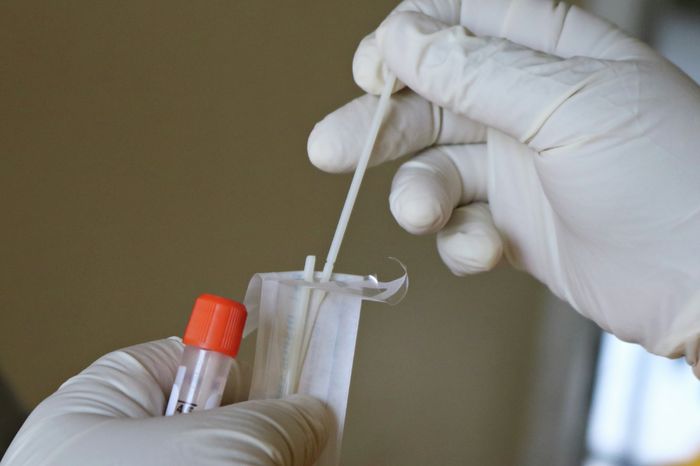Nearly three-quarters of Michaelmas Covid cases linked to one nightclub
Events attended by students over Halloween started the University’s biggest infection cluster

Nearly three-quarters of Covid-19 cases among students at Cambridge during Michaelmas term were traced back to one nightclub, new research shows.
Students who attended socially-distanced events over the Halloween period and during freshers’ week were, according to researchers analysing Cambridge’s COVID testing programme, the sources of the University’s biggest infection cluster.
At its peak, the University’s COVID screening programme tested 10,000 students each week and was the largest in the UK.
Genomic sequencing, which aims to create a ‘family tree’ of Covid-19 cases, suggested that the virus spread most rapidly amongst students who mixed with a large number of households before the second lockdown. The highest proportion of cases were amongst students in their first year.
Across the whole term, 5.2% of Cambridge’s students had received a positive test for Covid-19.
Dr Nicholas Matheson, a researcher at the Cambridge Institute of Therapeutic Immunology and Infectious Disease (CITIID) who contributed to the designing of the screening programme, told the Guardian that the data supports the use of mass coronavirus testing to control infections, and that this should be part of a “package of measures.”
“The demographics of the people who might attend nightclubs are also in general terms people who’re not yet vaccinated,” he said. “Our data is definitely supportive of a role for coronavirus testing in helping to control infections – but we don’t think it’s a magic bullet.”
Despite the uncertainty surrounding the state of the pandemic in the next academic year, Matheson believes that mass testing will continue to be part of university life for students.
“The most favourable end of the spectrum may see a limited role for testing, that might involve PCR testing a fraction of students on a regular basis for surveillance purposes. Less favourable scenarios would require surge testing or regular screening.”
He also advocated for universities to strike a balance between allowing students to mix widely and keeping them within small households.
Dr Dinesh Aggarwal, a researcher at Cambridge’s medical school, suggested that genome sequencing could be used by venues to determine ways of managing infection. For example, different forms of social distancing and increased ventilation could be used to make venues safer.
The study also found that little evidence of the virus spreading from students into the local community, or of transmission between staff and students.
In Michaelmas term, the screening programme identified 45% of the 671 positive coronavirus cases among students and asked them to self-isolate.
The number of cases detected by the screening programme has reduced drastically in Lent and Easter term. As of 28/05, the asymptomatic testing programme has found no positive cases for coronavirus in the past four weeks.
 Features / Should I stay or should I go? Cambridge students and alumni reflect on how their memories stay with them15 December 2025
Features / Should I stay or should I go? Cambridge students and alumni reflect on how their memories stay with them15 December 2025 News / Cambridge study finds students learn better with notes than AI13 December 2025
News / Cambridge study finds students learn better with notes than AI13 December 2025 News / Dons warn PM about Vet School closure16 December 2025
News / Dons warn PM about Vet School closure16 December 2025 News / News In Brief: Michaelmas marriages, monogamous mammals, and messaging manipulation15 December 2025
News / News In Brief: Michaelmas marriages, monogamous mammals, and messaging manipulation15 December 2025 Comment / The magic of an eight-week term15 December 2025
Comment / The magic of an eight-week term15 December 2025









